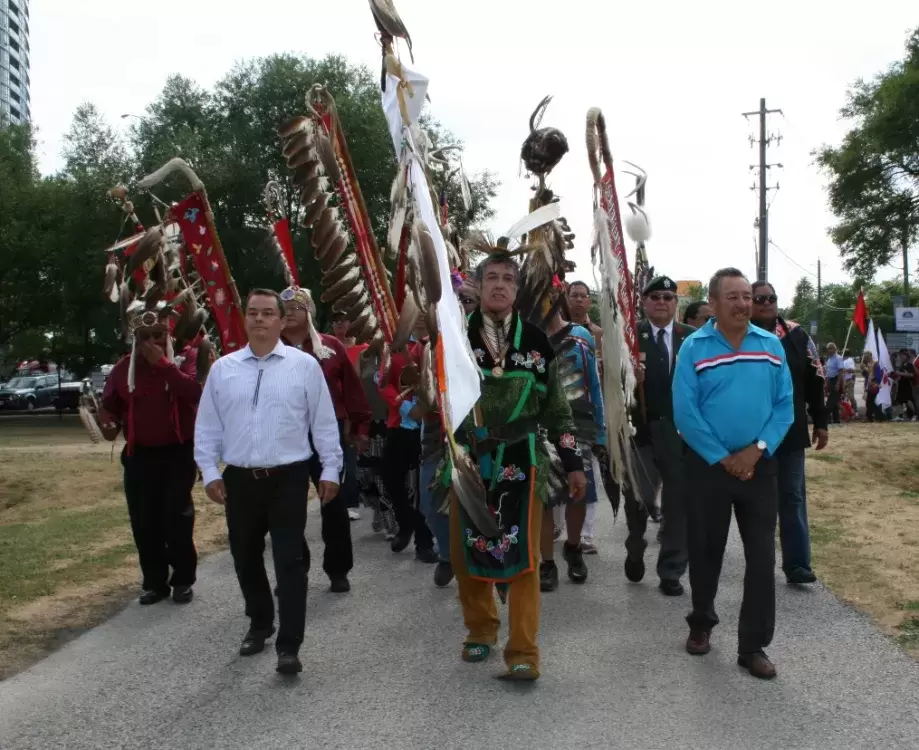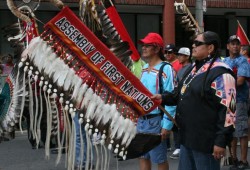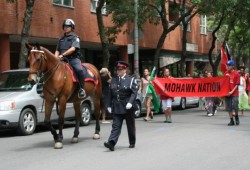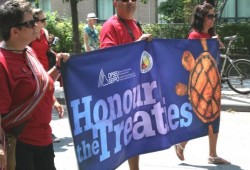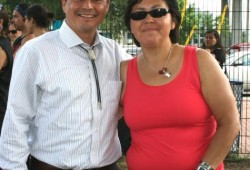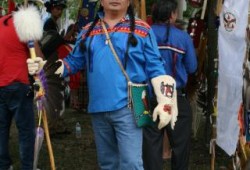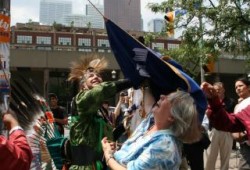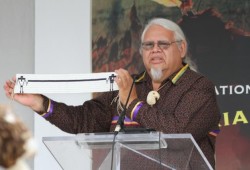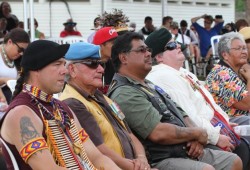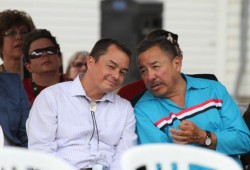National Chief Shawn A-in-chut Atleo took part today in the commemoration of Anishnawbe warriors who fought in the War of 1812. The event took place at Fort York in modern day Toronto, the site of a major skirmish against American forces that were intent to invade Canada and take over fertile agricultural land.
These 10,000 brave men and women were allies and equals of the British whose numbers were too few in Upper Canada (Ontario) to defend the territory alone. The British went to the Anishnawbe to ask for their assistance, and 24 First Nations united under the Shawnee leader Tecumseh to drive the Americans back.
The British had reasserted their pledge that if First Nations helped they would live free on their own land under their own laws. The Anishnawbe accepted that pledge, said Rick Hill, a historian who had brought with him two replicas of the wampum belts that spoke of that agreement.
If it weren’t for that tremendous contribution, Canada would be merely an annex of the United States, said James Bartleman, former Lt. Gov. of Ontario, and a descendant of one of those warriors. He is from Mnjikaning Nation, also known as Chippewas of Rama. Bartleman performed emcee duties for the event.
The commemoration took place after a five km Eagle Staff procession through the streets of Toronto to honor and remember the warriors who took part in that three-year war. Along that walk, the City of Toronto made the announcement that Jarvis St. would become known as Warrior's Way, and City Councillor Pam McConnell unveiled the new sign.
Bartleman said Anishnawbe participation in the war was a glorious chapter in Native American history. He explained that the warriors were motivated to help the British because of the terrible treatment Native American tribes were receiving at the hands of the Americans, driving Natives from their homes in the east, sending them west to territory already occupied by others.
The Anishnawbe forces believed their turn would be next if the Americans were successful in overthrowing the British.
Bartleman said the Americans thought that it would be a short walk into Canada, and that the British, because of their small numbers, would be forced to capitulate. They didn’t count on the Native warriors they would meet.
That war would be the last time Canada and First Nations would be allies; true equal partners, said Bartleman.
Atleo addressed the crowd, primarily made up of Ontario First Nation members, and told them that we today appreciate what their ancestors did 200 years ago. He said we should always be filled with pride in their skilled warfare and recognize that their achievements are our inheritance.
Atleo said those warriors did not fight as British subjects, but as allies of the British forces. He said they laid down a solid foundation on which to build.
He thanked all First Nations veterans for their contributions.
“They must be respected,” Atleo said.

